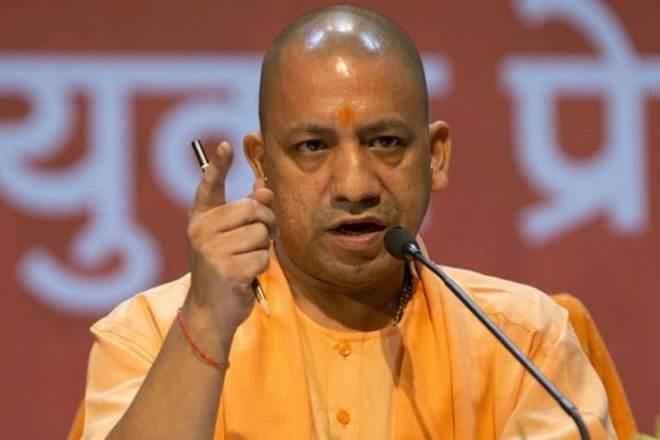UP Govt Revokes Order Extending Daily Shift; Longer Working Hours Fear Still Looms, Says Expert

Image use for Representational only. image Courtesy: The Financial Express
The Uttar Pradesh government has revoked its controversial order extending daily shifts of workers, from the established norm of eight hours to 12 hours, in industrial units, Allahabad High court was informed on Friday.
Following a notice issued by the high court, the state government said that the decision has been withdrawn through a notification on May 15. In the wake of economic activities coming to a halt in the state due to coronavirus-induced lockdown, the Yogi Adityanath–led BJP government had earlier amended the Factories Act of 1948, allowing longer working hours for the period of three months, beginning from April 20.
Cheered by many workers’ fronts, labour experts, however, believe that the fear over extended working hours in Uttar Pradesh persists, owing to another independent ordinance that seeks exemption of almost all labour laws for companies for a period of three years.
One of whom, with similar opinion, is K R Shyam Sundar, professor and labour economist at XLRI Jamshedpur, according to whom, the possibility of doing away with the established norms of eight-hour work day continues to remain, even in Uttar Pradesh.
He referred to another ordinance, namely, the Uttar Pradesh Temporary Exemption from Certain Labour Laws Ordinance, 2020 “that would override all other ordinances” and which reportedly proposes to exempt businesses from the purview as many as 38 labour laws, including provisions of Factories Act, barring only those relating to safety and security of workers.
The draft copy of this ordinance states that “all factories and establishments engaged in manufacturing process shall be exempt from the operation of all labour laws for a period of three years”, provided they fulfil certain conditions, Business Standard reported earlier.
“The ordinance will have to secure consent of the President in order to be effective,” Sundar told NewsClick. This is because labour is a concurrent subject under the Constitution of India and would require the approval of the central government before any changes.
If approved by the President, Sundar fears that it will render developments relating to other ordinances “superfluous”, which may potentially translate into a drift from the established labour norms that are inconsistent with the standards prescribed by International Labour Organisation (ILO).
Despite the looming concerns, Sundar, however, welcomed the rollback of the 12-hour work day notification by the Uttar Pradesh government. “This revocation will give hope to the workers and concerned academics that the state government may review its own ordinance [that which exempts businesses from all labour laws], which is far more extensive and potentially harmful to both industrial establishments and the labour,” he said.
The withdrawal of the notification has also cheered workers’ fronts across the country, for whom the Allahabad high court judgment in the matter could pave a legal way to get other states to revoke orders extending daily shifts.
Also read: Auraiya: At Least 24 Migrant Workers Killed, 36 Injured, in Another Accident in UP
Take the instance here, where the amendment to Factories Act was challenged in the high court, through a writ petition filed by Uttar Pradesh Worker Front, a recognised federation of numerous unions of construction, unorganized workers and others, on May 13.
“We had challenged the notification because it was ‘anti-worker’ and was against the provisions laid out in the constitution of India,” Dinkar Kapoor, President of the worker’s front, told NewsClick.
According to him, the exercise of powers conferred under Section 5 of the Factories Act was “questionable”. The section empowers the state government to exempt factories from all or any provision of the act, except that which prohibits employment of children, on the grounds of “public emergency”.
The section defines “public emergency” as a “grave emergency whereby the security of India or of any part of the territory thereof is threatened, whether by war or external aggression or internal disturbance”.
“The medical emergency caused by the coronavirus is not covered under the meaning of ‘public emergency’ defined in factories act and hence the argument of the UP government to extend working hours couldn’t hold,” Kapoor said.
Moreover, Kapoor referred to the 44th amendment to the Indian constitution in 1978 which added, under provisions to proclaim an emergency (Article 352), that internal disturbance not amounting to “armed rebellion” would not be a ground for the issue of a proclamation.
“The constitution was amended to a new definition, however, years later that has not been reflected in the factories act,” Kapoor said. He further added that his petition has sought directions from the court to amend the definition of “internal disturbance”.
If in favour, Kapoor believes that the judgment would also provide grounds to challenge the orders of extending working hours issued by other states in recent times. Out of eight states so far, at least two – Gujarat and Himachal Pradesh – have invoked section five of the factories act.
Next hearing on the matter has been scheduled for May 18.
Meanwhile, central trade unions – barring RSS-affiliated Bharatiya Mazdoor Sangh – have decided to hold a nationwide protest on May 22 against the changes made in labour laws by several states. Leaders of trade unions will observe an one-day “hunger strike” at News Delhi’s Rajghat.
In its May 14 statement, 10 central trade unions also said that they will send a joint representation to ILO against the dilution of workers’ rights and violations of international commitments on labour standards and human rights by the centre.
Also read: Top Court Must Reduce Migrant's Hardships
Get the latest reports & analysis with people's perspective on Protests, movements & deep analytical videos, discussions of the current affairs in your Telegram app. Subscribe to NewsClick's Telegram channel & get Real-Time updates on stories, as they get published on our website.
























